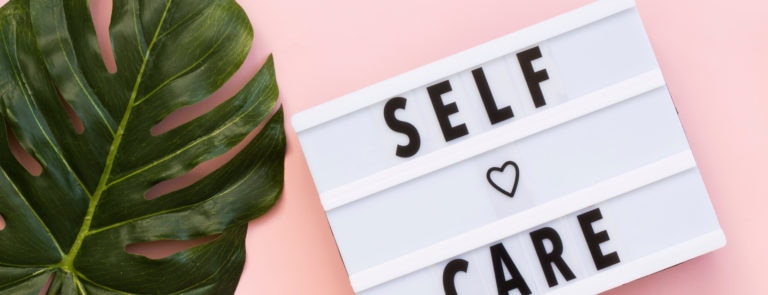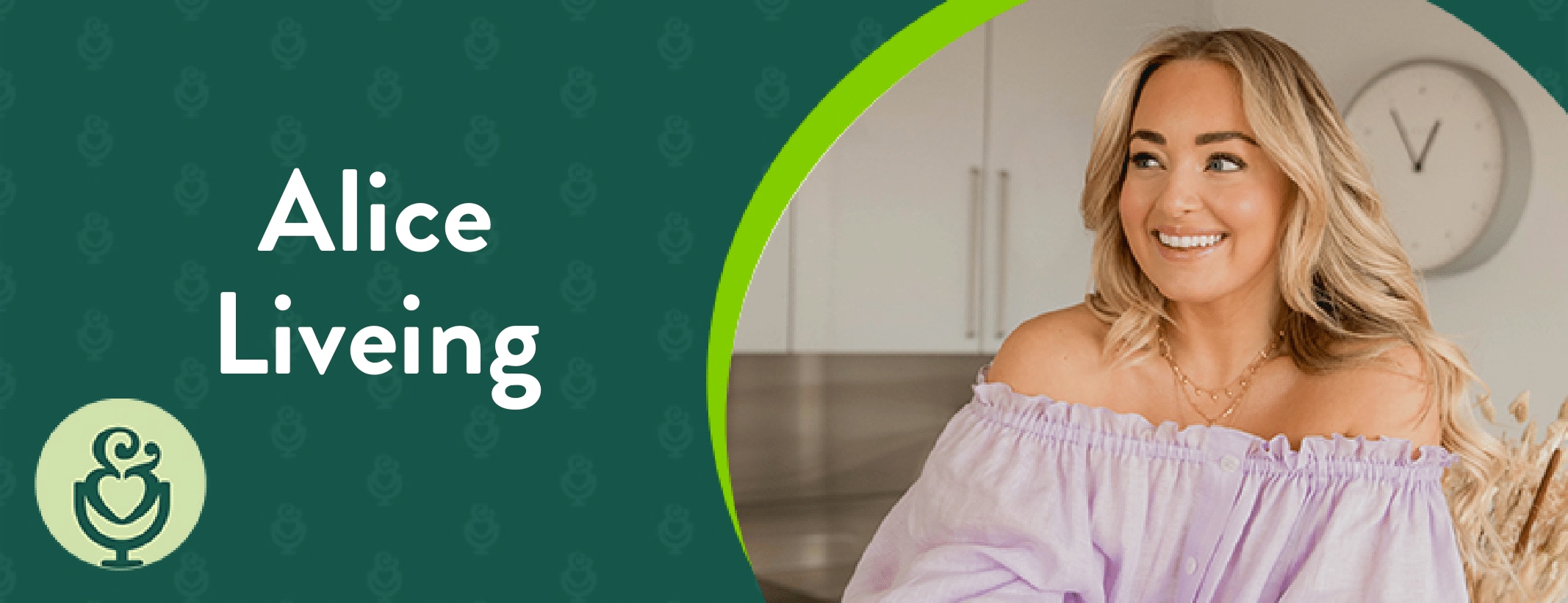15% off €25
How to lift a low mood during your period

Summary
1What is PMS?
Known commonly as PMS, premenstrual syndrome is a phrase which captures a whole range of symptoms you may feel in the run-up to having your period...
2What causes a low mood during your period?
During your period, you’ll have a low level of two key reproductive hormones – oestrogen and progesterone. Recent research indicates that a decline...
3Different mood changes during your period
Your hormonal changes and their effects aren’t isolated to only the days you have your period. Your menstrual cycle is made up of four key stages:
What is PMS?
- fatigue
- trouble sleeping
- bloating or tummy pain
- tender breasts
- food cravings
- headaches
- acne flare-ups
- greasy hair
- changes in sex drive
What causes a low mood during your period?
Different mood changes during your period
- The menstrual phase: your cycle starts with the menstrual phase – where you have your period. Most people bleed for three to five days6
- The follicular phase: during this part of the menstrual cycle, your oestrogen, follicle-stimulating hormone (FSH) and luteinising hormone (LH) levels will all start to rise and, as a result, you might notice that any negative emotions are less severe3,4,11,12
- Ovulation: at the end of the follicular phase, you’ll usually ovulate (release an egg from your ovary). This is where your oestrogen levels peak, which can cause anger, irritability and cravings5
- The luteal phase: this phase lasts from about day 14 to day 28 of your cycle. Around a week before your period, your oestrogen and progesterone levels start to drop rapidly.6 When this happens, the production of serotonin starts to slow down, which can lead to symptoms like insomnia, fatigue, and low mood3,6,13
Improving your mood during your period
Lifestyle changes

Raise your heart rate
Balance your cravings with carbs
Ease stress to soothe symptoms
Reboot with good rest
Medication options
The final say
1. Ojezele, Matthew O., et al. Mood Swing during Menstruation: Confounding Factors and Drug Use. Ethiopian Journal of Health Sciences. 2022; vol. 32, no. 4, pp. 681-688, https://doi.org/10.4314/ejhs.v32i4.3
2. NHS. PMS (Premenstrual syndrome) [Internet]. 2018 [cited 2024 Feb 12]. Available from: https://www.nhs.uk/conditions/pre-menstrual-syndrome/
3. Gudipally, P., et al. Premenstrual syndrome. In: StatPearls. StatPearls Publishing, 2023. Available from: http://www.ncbi.nlm.nih.gov/books/NBK560698/
4. NHS Inform. PMS (Premenstrual syndrome) [Internet]. 2023 [cited 2024 April 18]. Available from:https://www.nhsinform.scot/healthy-living/womens-health/girls-and-young-women-puberty-to-around-25/periods-and-menstrual-health/premenstrual-syndrome-pms/
5. Handy, A., et al. Psychiatric symptoms across the menstrual cycle in adult women: a comprehensive review. Harv Rev Psychiatry. 2022;30(2):100–17. Available from: https://www.ncbi.nlm.nih.gov/pmc/articles/PMC8906247/
6. Thiyagarajan DK, Basit H, Jeanmonod R. Physiology, Menstrual Cycle. [Updated 2022 Oct 24]. In: StatPearls [Internet]. Treasure Island (FL): StatPearls Publishing; 2024 Jan-. Available from: https://www.ncbi.nlm.nih.gov/books/NBK500020/
7. Brock, R., Rowse, G. & Slade, P. Relationships between paranoid thinking, self-esteem and the menstrual cycle. Arch Womens Ment Health. 2016; 19, 271–279. https://doi.org/10.1007/s00737-015-0558-4
8. Owens, Sarah A., et al. Understanding When and Why Some Adolescent Girls Attempt Suicide: An Emerging Framework Integrating Menstrual Cycle Fluctuations in Risk. Child Development Perspectives. 2020; vol. 14, no. 2, p. 116, https://doi.org/10.1111/cdep.12367
9. Marjoribanks, Jane, et al. Selective Serotonin Reuptake Inhibitors for Premenstrual Syndrome. The Cochrane Database of Systematic Reviews. 2013; vol. no. 6, 2013, https://doi.org/10.1002/14651858.CD001396.pub3
10. DFARHUD, Dariush, et al. Happiness & Health: The Biological Factors- Systematic Review Article. Iranian Journal of Public Health. 2014; vol. 43, no. 11, pp. 1468-1477, https://www.ncbi.nlm.nih.gov/pmc/articles/PMC4449495/
11. Davydov, Dmitry M., et al. Moods in Everyday Situations: Effects of Menstrual Cycle, Work, and Stress Hormones. Journal of Psychosomatic Research, vol. 58, no. 4, 2005, pp. 343-349, https://doi.org/10.1016/j.jpsychores.2004.11.003
12. Reed, Stephanie C., et al. Changes in Mood, Cognitive Performance and Appetite in the Late Luteal and Follicular Phases of the Menstrual Cycle in Women with and Without PMDD (Premenstrual Dysphoric Disorder). Hormones and Behavior, vol. 54, no. 1, 2008, pp. 185-193, https://doi.org/10.1016/j.yhbeh.2008.02.018
13. Hromatko, Ivana, and Una Mikac. A Mid-Cycle Rise in Positive and Drop in Negative Moods among Healthy Young Women: A Pilot Study.Brain Sciences, vol. 13, no. 1, 2023, https://doi.org/10.3390/brainsci13010105
14. Daley A. Exercise and premenstrual symptomatology: a comprehensive review. J Womens Health (Larchmt). 2009; Jun;18(6):895-9. doi: https://www.liebertpub.com/doi/10.1089/jwh.2008.1098
15. Samadi, Z, et al. The Effects of 8 Weeks of Regular Aerobic Exercise on the Symptoms of Premenstrual Syndrome in Non-athlete Girls. Iranian Journal of Nursing and Midwifery Research. 2013; vol. 18, no. 1, pp. 14-19. https://www.ncbi.nlm.nih.gov/pmc/articles/PMC3748549/
16. Daley, Amanda. The Role of Exercise in the Treatment of Menstrual Disorders: The Evidence. The British Journal of General Practice. 2009; vol. 59, no. 561, pp. 241-242, https://doi.org/10.3399/bjgp09X420301
17. Dehnavi, Zahra M., et al. The Effect of 8 Weeks Aerobic Exercise on Severity of Physical Symptoms of Premenstrual Syndrome: A Clinical Trial Study. BMC Women's Health. 2018; vol. 18. https://doi.org/10.1186/s12905-018-0565-5
18. BDA. Food fact sheet – Premenstrual Syndrome (PMS) [Internet] [cited 2024 Feb 12]. Available from: https://poliklinika-harni.hr/images/uploads/2738/pms-prehrana.pdf.
19. Fardet A. New hypotheses for the health-protective mechanisms of whole-grain cereals: what is beyond fibre? Nutrition Research Reviews. 2010;23(1):65–134. doi:10.1017/S0954422410000041. Available from: https://www.cambridge.org/core/journals/nutrition-research-reviews/article/new-hypotheses-for-the-healthprotective-mechanisms-of-wholegrain-cereals-what-is-beyond-fibre/CADD660D4B3EADC44D58DDA91C78D30D
20. Esmaeilpour M, Ghasemian S, Alizadeh M. Diets enriched with whole grains reduce premenstrual syndrome scores in nurses: an open-label parallel randomised controlled trial. British Journal of Nutrition. 2019;121(9):992–1001. doi:10.1017/S0007114519000333. Available from:https://www.cambridge.org/core/journals/british-journal-of-nutrition/article/diets-enriched-with-whole-grains-reduce-premenstrual-syndrome-scores-in-nurses-an-openlabel-parallel-randomised-controlled-trial/36BF36D18C84C90F823EC3966C6BF8A1
21. Abdollahifard, Sareh, et al. The Effects of Vitamin B1 on Ameliorating the Premenstrual Syndrome Symptoms. Global Journal of Health Science, vol. 6, no. 6, 2014, pp. 144-153, https://doi.org/10.5539/gjhs.v6n6p144
22. Gollenberg, Audra L., et al. Perceived Stress and Severity of Perimenstrual Symptoms: The BioCycle Study. Journal of Women's Health, vol. 19, no. 5, 2010, pp. 959-967, https://doi.org/10.1089/jwh.2009.1717Accessed 18 Apr. 2024..
23. B. Lustyk, M. K., et al. Relationships Among Premenstrual Symptom Reports, Menstrual Attitudes, and Mindfulness. Mindfulness, vol. 2, no. 1, 2011, p. 37, https://doi.org/10.1007/s12671-011-0041-x
24. Nayman, Sibel, et al. Associations of Premenstrual Symptoms with Daily Rumination and Perceived Stress and the Moderating Effects of Mindfulness Facets on Symptom Cyclicity in Premenstrual Syndrome. Archives of Women's Mental Health, vol. 26, no. 2, 2023, pp. 167-176, https://doi.org/10.1007/s00737-023-01304-5
25. Shechter, Ari, et al. Circadian Variation of Sleep During the Follicular and Luteal Phases of the Menstrual Cycle. Sleep, vol. 33, no. 5, 2010, pp. 647-656, https://doi.org/10.1093/sleep/33.5.647
26. Rugvedh, Padigela, et al. The Menstrual Cycle’s Influence on Sleep Duration and Cardiovascular Health: A Comprehensive Review. Cureus, vol. 15, no. 10, 2023, https://doi.org/10.7759/cureus.47292
27. NHS Inform. Sleeping better [Internet]. 2023 [cited 2024 April 18]. Available from: https://www.nhsinform.scot/mind-to-mind/sleeping-better/
28. NHS. How to fall asleep faster and sleep better [Internet]. 2023 [cited 2024 April 18]. Available from: https://www.nhs.uk/every-mind-matters/mental-wellbeing-tips/how-to-fall-asleep-faster-and-sleep-better/
29. InformedHealth.org [Internet]. Cologne, Germany: Institute for Quality and Efficiency in Health Care (IQWiG); 2006-. Premenstrual syndrome: Treatment for PMS. [Updated 2017 Jun 14]. Available from: https://www.ncbi.nlm.nih.gov/books/NBK279264/
30. Green LJ, O'Brien PMS, Panay N, Craig M on behalf of the Royal College of Obstetricians and Gynaecologists. Management of premenstrual syndrome. BJOG 2017; 124: e73–e105. Available from: https://obgyn.onlinelibrary.wiley.com/doi/full/10.1111/1471-0528.14260




